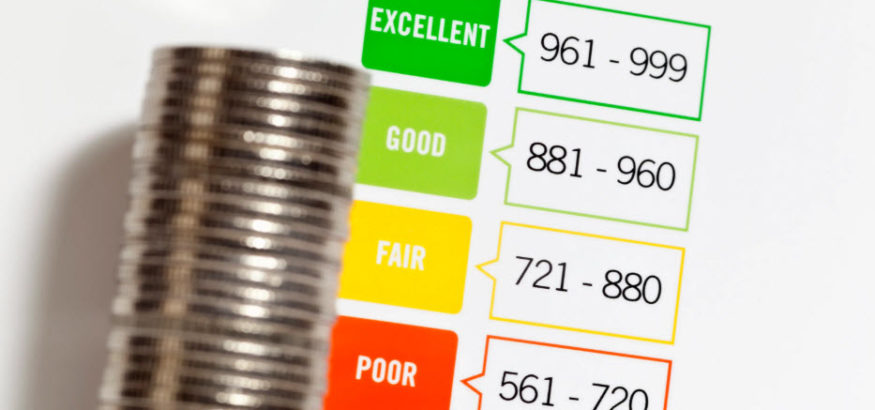Credit Scores – Understand What It Is And Get A Free Copy
What does your credit score really represent?
When you apply for any line of credit, lenders and creditors will make an inquiry on your credit report so they can evaluate your score. They’ll also look for any other items on your report that will allow them to gain a deeper understanding of the risks involved with lending to you. We’re going to explain how your credit score works and what you can do to improve it.
- What is a credit score?
- How to get a copy of your credit report and score for free
- How to build your credit score
What is a Credit Score?
Your credit score, or FICO score, is a number that reflects the borrowing activity that’s listed on your credit report. Ultimately, lenders use it to determine your creditworthiness. Your perceived creditworthiness determines if you qualify for a loan, how much you qualify for, and what interest rate a lender may offer to you.
How is Your Score Calculated?
Credit reporting agencies collect your personal information, along with your financial information, and document it on a credit report. This information plays a key role in calculating your credit score, which includes the following:
- Your personal information, like addresses you’ve lived and your age
- The types of credit you’ve used in the past, or are currently making repayments to
- The total amount of credit you’ve borrowed, broken down by each account
- The number of inquiries and applications you’ve submitted for lines of credit within the past two years
- Any unpaid or overdue repayments on your accounts
- Any debt settlement or bankruptcy agreements
What does my score mean?
Your score may vary from one credit bureau to the next, but of the three credit bureaus- Experian, Equifax, and TransUnion- your score will be a number between 300-850.
The numbers are broken into ranges that can be defined as Excellent, Good, Fair, and Poor/Bad credit. The ranges are outlined below:
- Excellent Credit: 720-850. This number indicates you don’t have any negative events that indicate poor creditworthiness for the duration of your loan.
- Good Credit: 690-719. You are unlikely to have any issue paying on your loan with this credit score.
- Fair Credit: 630-689. This represents an increased likelihood of having an issue with repayment during the lifetime of your loan.
- Bad/Poor Credit: 300-629. This means you are most likely to face an event that causes you not to make repayments on your loan.
How to find out your credit score for free
There are a number of ways to acquire your credit score online, though they may fluctuate, depending on the credit bureau they use. The following websites offer free credit score reports:
If you don’t wish to obtain your credit report online, you can fill out an Annual Credit Report Request Form and receive it by mail.
Protecting your personal information
When you go online to see your credit report and score, you might agree to
allow your personal information to be disclosed to third parties for marketing information. Make sure you peruse all the terms and conditions and consider if sharing your personal information is worth disclosing for those marketing purposes. You have the option to opt out or unsubscribe from sharing these details.
Regular checking of your credit report can protect you from fraud
Checking your credit rating and credit report will help you always make sure that the information that’s listed is up to date and accurate. Criminals may attempt to use your identity to apply for credit in your name, so following your credit history closely allows you to quickly mitigate the negative effects of identity theft.
How to Build Your Credit Score
Over time, your credit score may increase or decrease depending on the information listed on your report. Even if your financial behavior has not changed, your score can. This may be a result of the following factors:
- Applying for new lines of credit
- A listing on your credit report that expired
- Changes in your credit limits to existing lines of credit
- New information from a creditor
- Closing a loan or credit card
- Late repayments (of 2 weeks or more)
If you wish to improve your credit rating, begin by taking stock of your current financial situation and define a few steps toward increasing it. As your financial circumstances improve, your credit rating will naturally improve. Getting into a better credit rating/position before applying for future lines of credit will also increase the likelihood of approval. Learn more about credit repair here.
Here are some tips for improving your score:
- Lower your credit card balances
- Consolidate your multiple personal loans and/or credit cards
- Limit your applications for more lines of credit
- Make all of your payments on time
- Pay your credit card in full each month
Credit scores reflect your creditworthiness to lenders and help them make the ultimate decision of approving or denying your applications for credit. Knowing all about your score will help you with negotiating better rates with lenders, or finding alternative lenders who will reward your improved credit history. Learn the ins and outs or credit reports here.

